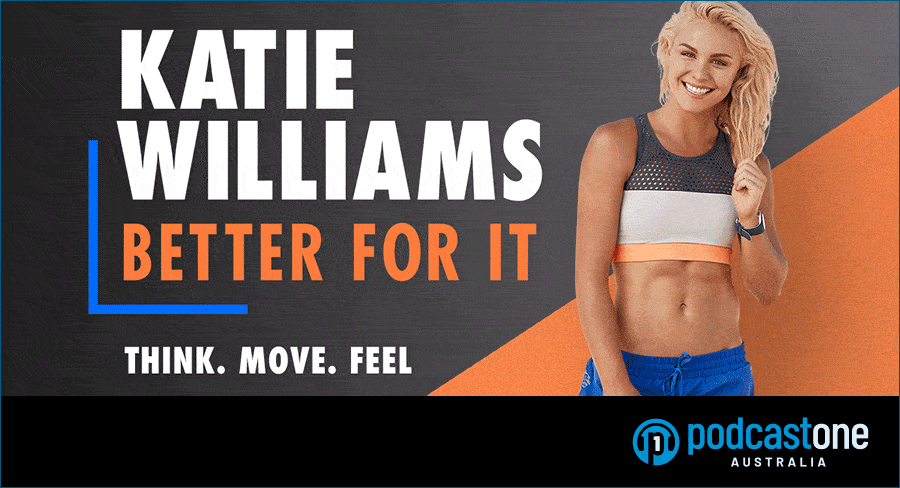Compiled by James Manning
Sarah Wilson signs with PodcastOne
“The new podcast Wild continues my 10-year journey where I have conversations around what makes us connect better and more vibrantly to life,” Sarah Wilson told Mediaweek about her audio adventure. PodcastOne’s newest host added: “The people I am talking to range from academics to poets to sports stars – people who have something to teach me. With them I take a deep dive into a single idea. I choose a Wild idea that has influenced me, hunt down that person and have a deep chat.”
Writer and broadcaster Wilson is releasing seven episodes each series, across three series, and the episodes will be dropped one week at a time. “My first guest is Sia which is awesome as she doesn’t do a lot of interviews.”
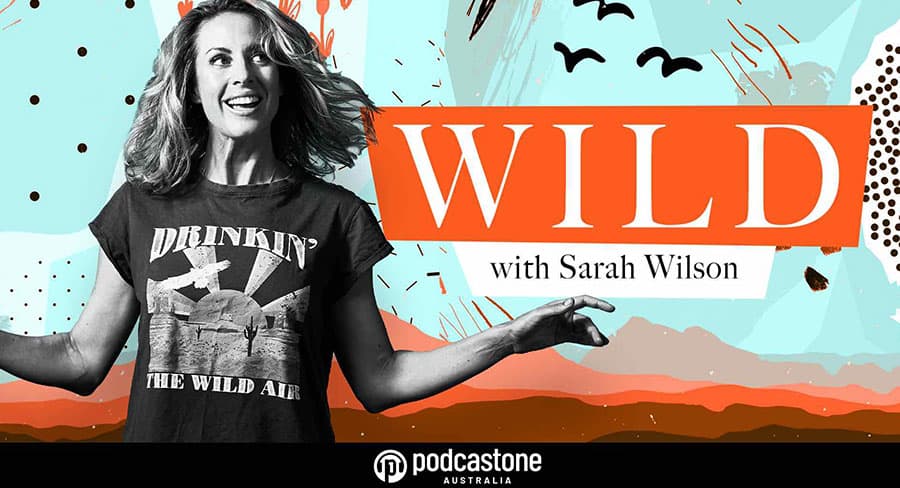
Coming soon after is retired rugby star David Pocock. “We met via Instagram through our activism work. I have no interest whatsoever in football, and we started sharing different books we were reading and developed a friendship.”
Another guest is a marketing guru who first influenced Wilson in her busines I Quit Sugar. “He later influenced me to shut it down and give everything to charity.”
Wilson’s connection to go with PodcastOne for this series was head of entertainment and news content Sam Cavanagh. “He reached out to me and asked if I had thought about a podcast. I said I’d do it if I could work with him and he’s worked on the episodes from beginning to end. I like working in the media with the good people, ones that are thorough who care about the right things. It has been a most lovely collaboration.”
The podcast is one of a number of projects Wilson has on the boil in 2021. Her speaking tour with Live Nation is still going head, albeit a little later in the year than originally planned. “My Jan-Feb tour is now June-July. We will keep pushing it back until we can do it.”
Wilson’s two most-recent books meanwhile continue to sell well – First we Make the Beast Beautiful and This One Wild and Precious Life. “The books are just the start of the conversation and the podcast now fits in really well,” she explained.
Listen to Wild hear from January 25.
Also listen to Sarah Wilson’s Mediaweek podcast
Marty Sheargold’s podcast plans
Marty Sheargold remains intrigued by the podcast world, but for the time being it is breakfast radio first.
“Once I get my head around what sort of time commitment this will take, and the stand-up will take, I’d like to move into podcasting and do some long form interviews with particular guests I am attracted to,” Sheargold told Mediaweek on the eve of his new Triple M Melbourne debut with The Marty Sheargold Show.
“The podcast wouldn’t be me just talking to the three most-recent people who have been kicked out of the jungle. It would be me talking to someone I have a genuine interest in spending a longer period of time chatting with.
“One thing you don’t get in this commercial radio world is the chance to sink your teeth into a chat. You are either going to an ad break or a song as you wonder if you might be able to extend them out to another three minutes of chat. There are a number of limitations around this medium that podcasting doesn’t have that make it attractive.”
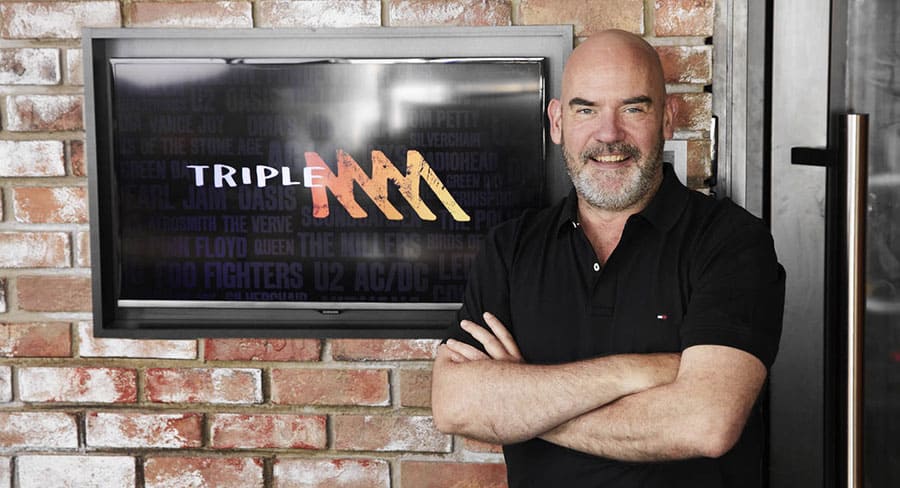
Marty continued: “I don’t want to get on my podcasting high horse, but once publishers work out how to best monetise podcasts it could really ruin all of us old long-in-the-tooth radio guys.
“I can’t see in 10 years time that radio will look the way it looks now – having on demand will be too attractive. I hope there will always be a breakfast show in markets like Melbourne. But multi-team shows will eventually need to make way for just one or two people which will probably be the reality in the next few years.”
Listen to The Marty Sheargold Show podcast here.
Kellie Riordan, Curveball and Deadset Studios
One of the key drivers in the podcast movement in Brisbane (“the international hub of podcasting”) is Kellie Riordan. She runs Deadset Studios, hosts the podcast Curveball and consults for a range of businesses. But people really take notice when they hear she put ABC Podcasts on the map, first dabbling in the format back in 2005 with the launch of Conversations.
“The consulting work I do advises on best practice podcasting for media organisations, both in Australia and globally,” Riordan told Mediaweek. “I also work with brands and organisations that want to get into podcasting as a form of communication. I also work with a number of independent podcasters who might be at the beginning of their journey or at mid-level.”
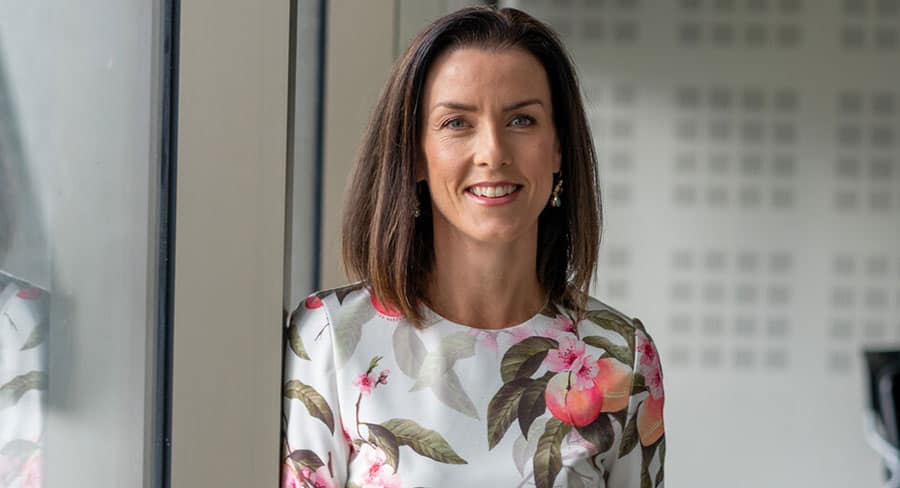
Riordan’s own podcast is Curveball. “It was something I always wanted to do – a show about business leaders and their warts and all experiences. The range of topics runs from start-ups that failed to business undergoing near-death experiences.”
Riordan said she was happy at the ABC for two decades during which time she established the podcast team. “We launched close to 40 shows over a couple of years, many critically acclaimed and very popular. I started my podcast journey in 2005, before the advent of the iPhone when I set up Conversations. At that time I had to get someone to teach me HTML code so I could post the MP3 file. It really was the wild west. I became increasingly more excited about the opportunity of on-demand audio and the idea people could opt-in to something that was tailored to their needs.”
Off her decision to leave the ABC and start her own business, Riordan explained: “The pandemic has made some of us feel like do we want to have a crack at something a little different or die wondering. In a lot of ways I felt like I had gone as far as I could at the ABC.”
There are a number of projects in development at Deadset Studios, but Riordan was understandably tight-lipped. “I am working in partnership with a number of people on projects that might have global appeal.”
Noting the podcast business model is still developing in Australia, Riordan said: “The sort of money that is flowing around amongst big podcasting companies is limited to the US. No one is rolling around in cash in Australia.”
What about support from advertisers? “Advertisers are perhaps a little slow to understand the real opportunity. Although general audiences might be a little smaller than other media sectors, something that is being underestimated is the deep interaction a podcast has with its audience. Of the people who are listening, they listen to about six podcasts a week. They are also listening to most of those episodes. The completion rate is very high – the audience is very engaged and can’t get enough of it. For certain brands and organisations, it should be part of their consideration. It is also a great way to reach the 20-30 demo which is undervalued in Australia.”
Curveball is represented by iHeartRadio in Australia, letting Riordan keep ownership of the product.
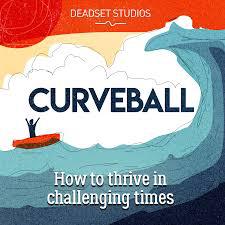
Others in the growing podcast sector in Brisbane include Jay Walkerden’s growing Podshape business, journalist and futurologist James Cridland and the ABC’s Andrew Davies (digital and engagement editor, ABC Audio Studios).
Riordan: “It’s interesting that both the former ABC and Nova national heads of podcasting were out of Brisbane.” Riordan also points to the health of the TV sector locally. In the next breath she agrees perhaps there should be a pitch to the Queensland Government about support for the podcasting sector as it has done for the TV/film production business.
• Listen to Curveball here.
• Subscribe to Kellie Riordan’s Pod Squad here.
Trailblazers unites Deb Hutton with Tim Gilbert
Deborah Hutton is giving listeners a sneak peek into her extraordinary life, from her early days of her modelling career to her life today in an interview with journalist Tim Gilbert, on his new podcast Trailblazers. The podcast is sponsored by Verus Global.
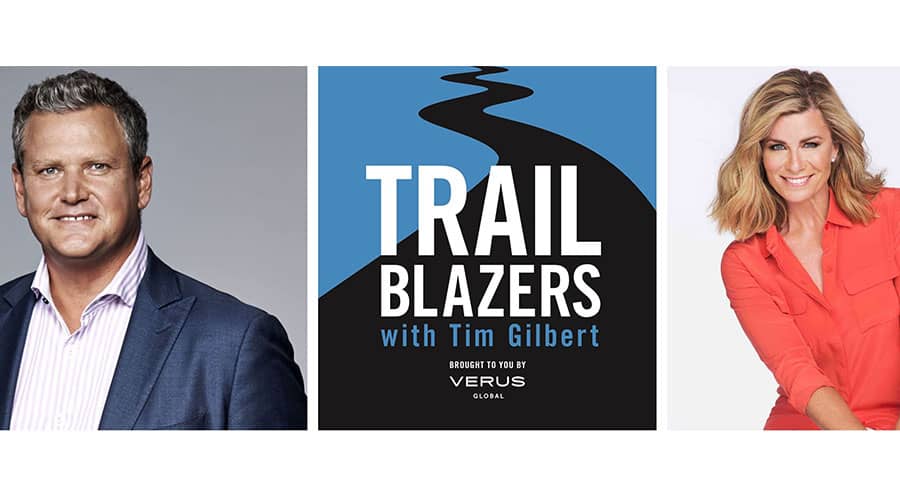
Having experienced a nomadic childhood moving around, a modelling career, being the face of Myer and a successful television career, Hutton discusses the unique path that led her to where she is today. Addressing her challenges with skin cancer, she also talks about the eye-opening experience and how she felt empowered to share the ugly side of skin cancer with the world.
“There’s a lot of resilience I’ve learned along the way. I was never tall enough, and I was never thin enough,” said Hutton. “I wasn’t that serious, I was out there having a nice time, I wasn’t going to the gym six hours a day, I was living my life. I think that’s my motto, just go out there and live it.”
